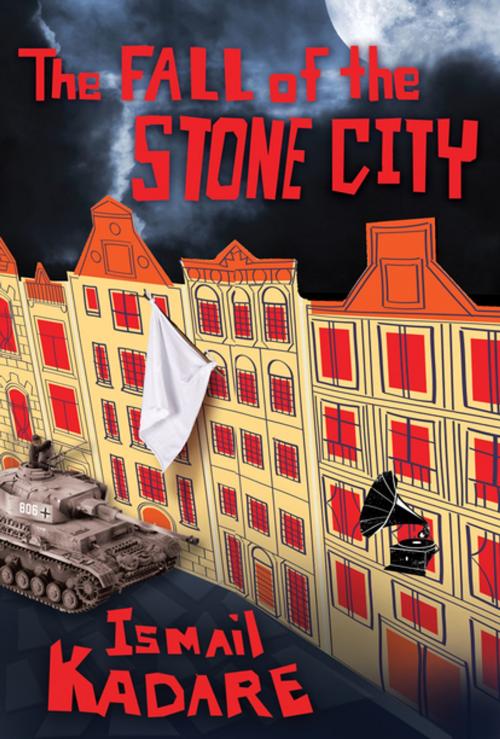| Author: | Ismail Kadare | ISBN: | 9780802193773 |
| Publisher: | Canongate U.S. | Publication: | February 5, 2013 |
| Imprint: | Grove Press | Language: | English |
| Author: | Ismail Kadare |
| ISBN: | 9780802193773 |
| Publisher: | Canongate U.S. |
| Publication: | February 5, 2013 |
| Imprint: | Grove Press |
| Language: | English |
It is 1943, and the Second World War is ravaging Europe. Mussolini decides to pull out of his alliance with the Nazis, and withdraws the Italian troops occupying Albania. Soon after, Nazi forces invade Albania from occupied Greece. The first settlement in their path is the ancient stone city of Gjirokastër, an Albanian stronghold since the fourteenth century. The townsfolk have no choice but to surrender to the Nazis, but are confused when they see that one of the town’s residents, a certain Dr. Gurameto, seems to be showing the invading Nazi Colonel great hospitality. That evening, strains of Schubert from the doctor’s gramophone waft out into the cobbled streets of the city, and the sounds of a dinner party are heard. The sudden disappearance of the Nazis the next morning leaves the town wondering if they might have dreamt the events of the previous night. But as Albania moves into a period of occupation by the Nazis, and then is taken over by the communists, Dr. Gurameto is forced to answer for what happened on the evening of the Nazi’s invasion, and finally explain the events of that long, strange night.
Dealing with themes of resistance in a dictatorship, and steeped in Albanian folklore and legend, The Fall of the Stone City shows Kadare at the height of his powers.
Dealing with themes of resistance in a dictatorship, and steeped in Albanian folklore and legend, The Fall of the Stone City shows Kadare at the height of his powers.
It is 1943, and the Second World War is ravaging Europe. Mussolini decides to pull out of his alliance with the Nazis, and withdraws the Italian troops occupying Albania. Soon after, Nazi forces invade Albania from occupied Greece. The first settlement in their path is the ancient stone city of Gjirokastër, an Albanian stronghold since the fourteenth century. The townsfolk have no choice but to surrender to the Nazis, but are confused when they see that one of the town’s residents, a certain Dr. Gurameto, seems to be showing the invading Nazi Colonel great hospitality. That evening, strains of Schubert from the doctor’s gramophone waft out into the cobbled streets of the city, and the sounds of a dinner party are heard. The sudden disappearance of the Nazis the next morning leaves the town wondering if they might have dreamt the events of the previous night. But as Albania moves into a period of occupation by the Nazis, and then is taken over by the communists, Dr. Gurameto is forced to answer for what happened on the evening of the Nazi’s invasion, and finally explain the events of that long, strange night.
Dealing with themes of resistance in a dictatorship, and steeped in Albanian folklore and legend, The Fall of the Stone City shows Kadare at the height of his powers.
Dealing with themes of resistance in a dictatorship, and steeped in Albanian folklore and legend, The Fall of the Stone City shows Kadare at the height of his powers.















